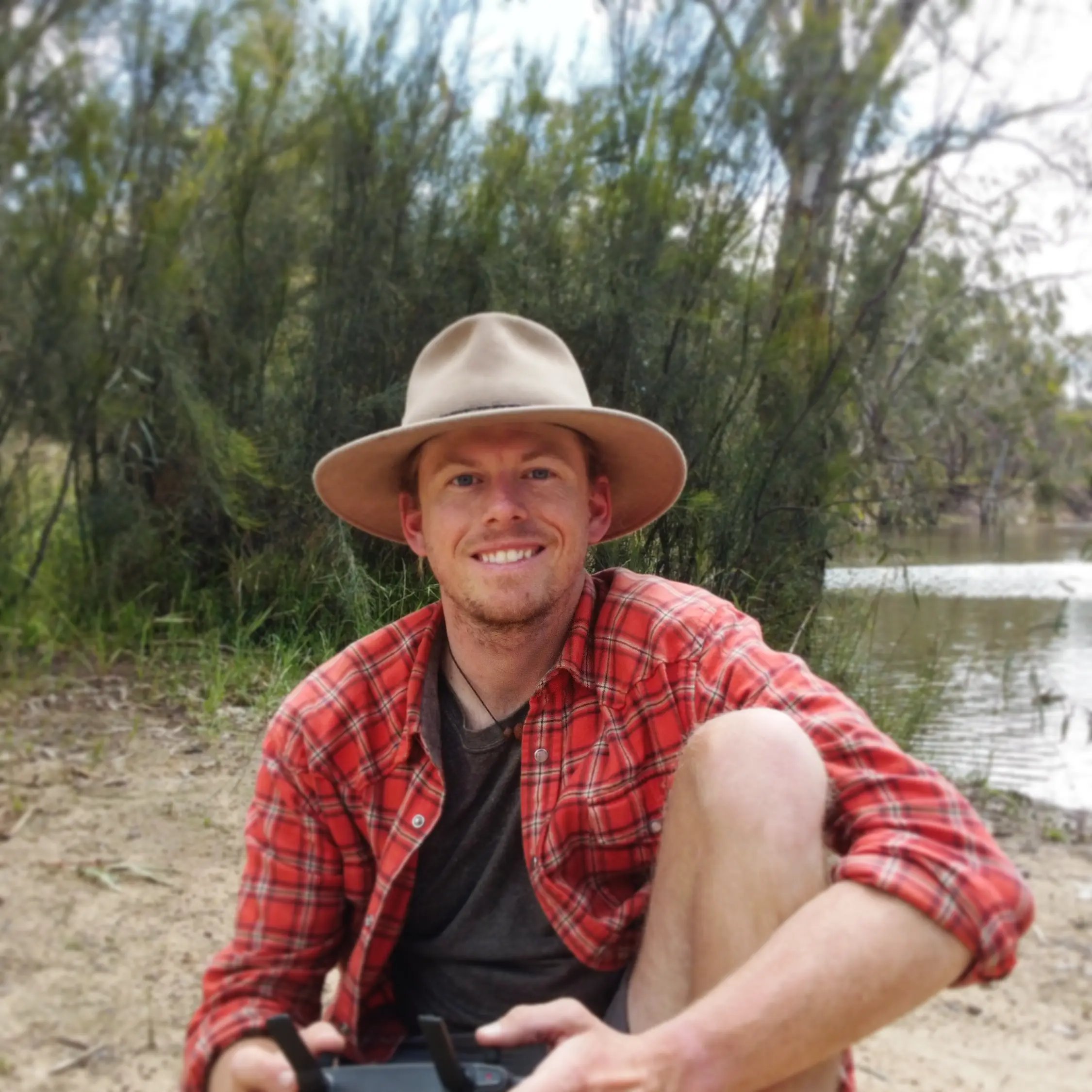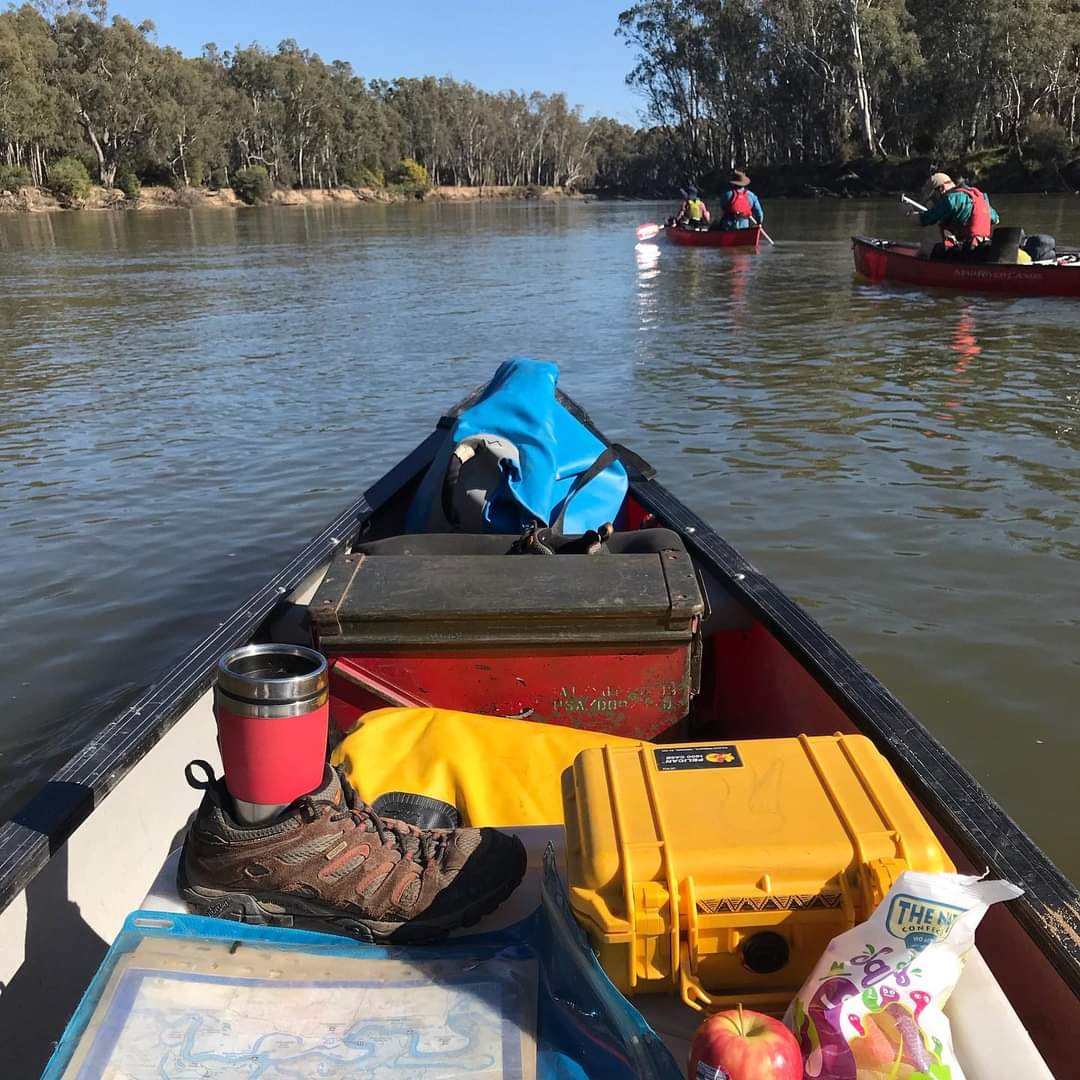Our Outdoor Educators are the heart of The Outdoor Education Group; they come from many walks of life with varied experience and diverse skills. But they have one thing in common – they all have a passion for sharing the outdoors with young people. Robert McKenna moved to Australia over three years ago from America to join us in our mission of connecting young people with the outdoors and has been an Outdoor Educator with us since.
WHAT IS THE ROLE OF AN OUTDOOR EDUCATOR?
The chief responsibility of an Outdoor Educator is to facilitate the students' learning experience and act as a guide throughout their outdoor education program. The role is dynamic; in my experience, it changes by the minute, depending on the situation. A lot of what I do is managerial – I manage the students, the group dynamic, logistics, timing and risk.
WHAT DOES A TYPICAL DAY LOOK LIKE?
During journey programs, mornings involve getting everyone moving – having breakfast, cleaning up, taking down tents and packing for the day. I ensure everyone is prepared for the day ahead with appropriate clothing and the gear necessary for the journey.
Once we leave our campsite, we might be bushwalking, cycling, paddling or climbing as we make our way to our next campsite. Unless the students are very young, I will usually allow them to lead the group while I position myself somewhere in the middle and leave much of the navigation to them. I'll support them and give them initial directions, but I've found when we give young people responsibility, they gain so much; during these moments, they begin to move as one and make decisions together.
Once we arrive at our campsite, we set up for the night, get started on dinner, and then wash up. Before we turn in for the night, I like to bring the group together for a debrief to reflect on the day's journey. We discuss what we enjoyed, what worked well and what we might improve on for the next day. We will also talk about what we will be doing the following day. These evening sessions are super valuable because they allow the students time and space to consider how they might apply what they have learnt so far to tomorrow's adventure.
I usually bring something to help me unwind at night while in my tent – a book or some music. But more often than not, I usually nod off pretty quickly. The sound of the bush at night has a way of relaxing you.

HOW DID YOU GET INTO THE OUTDOOR EDUCATION FIELD?
I studied Biology at university and found a student group called Outdoor Adventure, which organised student-led trips exploring the outdoors. I began as a participant and pretty quickly took on the role of Trip Leader, which I held for four years. I also did some fieldwork as part of my course, leading me to crossroads – I felt strongly about working in the outdoors.
I had some friends working for The Outdoor Education Group who enjoyed it. I had never been to Australia, but the opportunity seemed too good to pass up!
WHICH LOCATIONS HAVE YOU WORKED IN?
I've had the opportunity to work in so many amazing locations. I've delivered programs in Victoria, in the Eildon area, Gippsland Lakes, the High Plains and I've spent a lot of time around the Murray River. In South Australia, I've worked at Mt Remarkable and the Flinders Rangers. Most recently, I've been working in NSW around Belanglo State Forest, Kangaroo Valley, Shoalhaven River, the Great North Walk, Yarrahapinni and I've made many trips down the Hawkesbury River.
I've loved all these locations, but the Murray River left a particular impression on me. After four months there, I knew the river very, very well.
TELL US ABOUT HOW YOU'VE SEEN STUDENTS GROW ON PROGRAM?
Often students will begin the program asking me for quite a bit of support and it's tricky because while I want them to break this habit, I certainly don't want to be dismissive. Each student is different and requires a different approach, but I like to take the time to help them feel empowered to use their initiative. So, throughout a program, I will notice shifts in students, particularly the development of a greater sense of independence.
I will also observe students moving beyond their comfort zones. Many young people are not super familiar with the outdoors or having their schedules changed. However, towards the middle of a program, any anxieties generally fade away and I can see they become more at ease with their surroundings.

WHAT ARE SOME IMPORTANT SKILLS AND ATTRIBUTES REQUIRED OF AN OUTDOOR EDUCATOR?
In my experience, although technical skills are required, being well organised is vital. During program, there are many logistics involved, for example, ensuring we are where we are meant to be at the correct time, everyone has the right equipment, gear, food etc. It is important to be able to manage all elements, including risk, appropriately.
Being a strong communicator is another important aspect of being an Outdoor Educator. I am always mindful of speaking in a way everyone can follow no matter their age, background or experience. I try to be personable because it's essential to form a connection with the students and be able to converse with them in a meaningful way. I am rather reserved naturally, and in this way, I may be a bit different to the image people have of a typical Outdoor Educator. However, I form connections with my groups in my own way and we always have a great time together.
WHAT ASPECTS OF YOUR ROLE DO YOU ENJOY MOST?
For me, being able to be outdoors so much is incredible. When I think about it, some of my most cherished moments are being up early and having a cup of coffee just before the students wake up or taking a moment at night to look up at the starry sky; in these moments, I feel very fortunate.
I also love being part of someone's growth and changing their perspective – this is a large part of what I do. I love instructing and sharing teachable moments, showing our young participants things they may never have seen or didn't know they enjoyed.
TELL US ABOUT YOUR MOST MEMORABLE MOMENT IN THE FIELD?
Last year during an expedition, there were changes to the program outline at the last minute due to border closure. I was leading a great group of 14 Year 10 students. We started off with some really tough days – the trails were long and the terrain was challenging. There were moments I even felt myself wearing down. But seeing these students rally and support one another, though they weren't necessarily close friends, really stood out to me. They inspired me.

-556.jpg)


